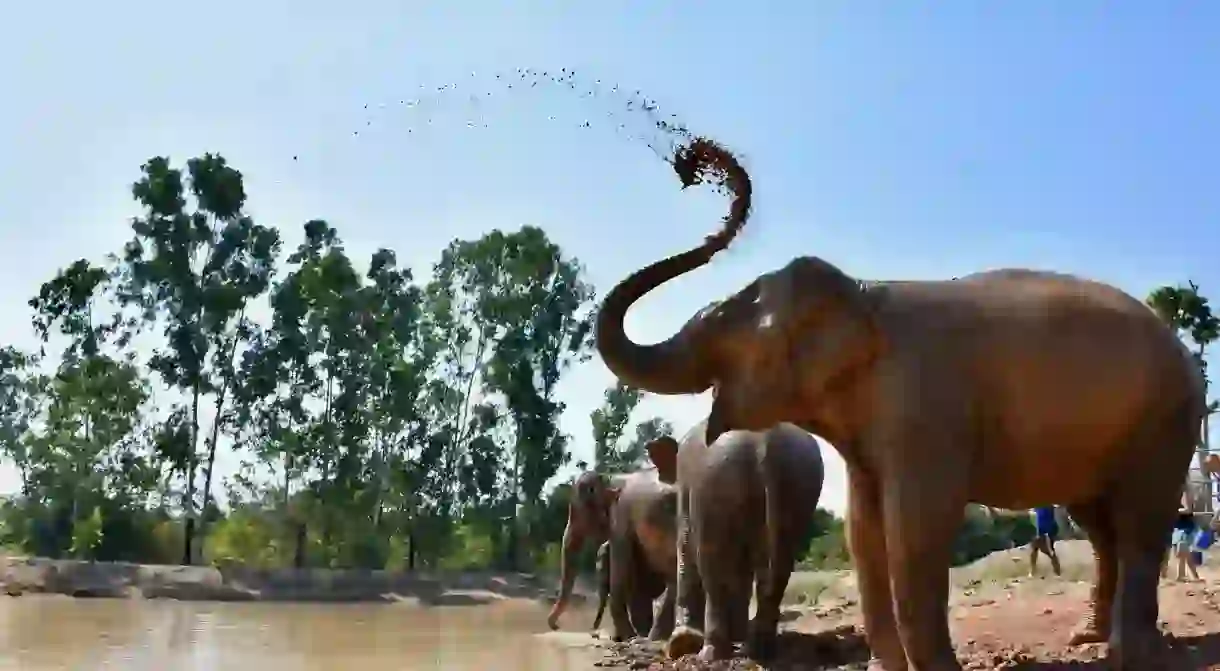Ethical Animal Sanctuaries in Thailand You Can Feel Good About Visiting

Over 30 million tourists flocked to Thailand in 2016. However, many of these eager explorers, unknowingly fuel a dark and cruel practice: animal tourism. While not all “sanctuaries” mistreat their animals, there are more than a few establishments that are unethical and abuse Thailand’s amazing wildlife, whether it be elephants, monkeys, or tigers. To ensure you have the most memorable yet ethical trip possible, here are the sanctuaries that are rescuing, rehabilitating, and in the end, saving animals’ lives.
Elephant Nature Park
Natural Feature, Park

Rescue Paws
Boon Lott’s Elephant Sanctuary (BLES)
Katherine Connor is behind Boon Lott’s Elephant Sanctuary, otherwise known as BLES. The tale behind the sanctuary is a sad one, with the main protagonist of the story being Boon Lott, meaning “survivor” in Thai. Boon Lott was a baby elephant who overcame an onslaught of obstacles. From almost being separated from his mother, to sustaining an injury that left his hind legs paralyzed, this young elephant did not go down without a fight. Even after Connor doing everything she could, Boon Lott eventually passed away, and Connor created BLES in his honor.

Providing relief to abused elephants, rehabilitating them, and offering support to local elephant owners, BLES is one elephant sanctuary working to improve the lives of elephants, as opposed to using them for their own, personal gain. Volunteer groups are kept small, as this benefits both the animals and the volunteers who set time aside to be part of what the sanctuary does. BLES is located in the central and historical province of Sukhothai. Participants pay ฿5,000 (US$142) a night, and this price includes all food, internet access, laundry service, and of course, all of the time spent with the elephants.
Boon Lott’s Elephant Sanctuary, 304 Mu 5, Baan Na Ton Jan, Tambon Baan Tuek, Si Satchanalai, Sukhothai, Thailand 64130, +66 055 910 221

The Gibbon Rehabilitation Project
Natural Feature, Zoo

Wildlife Friends Foundation Thailand
“We as individuals have a voice and money talks,” says Tom Taylor, assistant director of WFFT. “If all the tourists who came to Thailand each year visited ethical animal tourist attractions, such as WFFT, instead of giving money to unethical elephant camps, zoos or wild animals petting attractions, the demand for abusive animals attractions would be dramatically reduced.”













